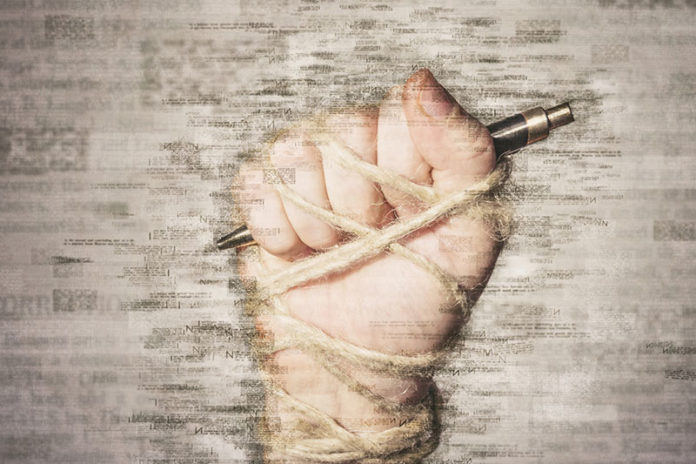Julian Assange has a knack for making enemies. Conservatives denounced him in 2010 after he put online a horde of classified information provided by Chelsea Manning, a U.S. Army intelligence analyst who went to prison for the leaks. Liberals revile him for disclosing hacked Democratic National Committee emails and helping elect Donald Trump.
On top of those, two Swedish women say he sexually assaulted them, which led to an arrest warrant that prompted him to seek asylum in the Ecuadoran embassy in London. He was arrested there “on behalf of the United States” Thursday morning after his asylum was canceled.
There will be no shortage of schadenfreude among those who see him as a malicious enemy of our security and democracy. That includes Sen. Ben Sasse, R-Neb., who tweeted Thursday that he “deserves to spend the rest of his life in prison.”
The problem with prosecuting Assange, though, has always been obvious. His chief sins involve publishing secret documents and other material that someone got through illicit means. But that practice is the stock-in-trade of legitimate news organizations, whose job is to find out things that are of public interest, classified or not. The Supreme Court has blessed such activity more than once — notably when it refused to bar publication of the Pentagon Papers during the Vietnam War.
Indicting him under the federal Espionage Act would threaten the First Amendment, which protects the freedom of the press — a right available to every person, not just major newspapers and cable news outlets. The only plausible exception applicable here would be if the government could demonstrate that the publication created a “clear and present danger” of serious harm to the nation and that the risk outweighed the value of the disclosure to the citizenry.
Without this constitutional protection, legitimate journalists could be locked up for reporting classified information leaked by government officials — even the president himself. But publishing leaks is essential for the American people to understand what their government does and hold it accountable. Among the secrets that WikiLeaks revealed in 2010 were that thousands more Iraqi civilians were killed than the U.S. military acknowledged, and that it turned a blind eye to torture and other abuses by Iraqi forces.
The fact that WikiLeaks published information secured by theft doesn’t deprive Assange of the protections of the First Amendment. When a radio station aired an illegally intercepted phone conversation about a labor strike between two officials of a teachers union, the Supreme Court said the station could not be held liable for its broadcast.
It’s not the responsibility of the press outlets or individuals like Assange to lock down classified information. That is the job of the government. It has every right to monitor employees such as Manning who gain access to its secrets — and to punish them for classified leaks. But if the government can’t manage to prevent such disclosures, it should blame itself. It shouldn’t try to block news organizations or other websites from making them available.
Obviously, one of the Justice Department’s purposes in going after Assange is to deter anyone from revealing classified information. The good news is that it has taken a very narrow approach to his case. The sole charge (so far, at least) is that he actively assisted Manning’s violation of the law by helping her crack a password for a Defense Department computer. If convicted, Sasse will be disappointed to learn, Assange faces no more than five years behind bars.
That alleged conduct is the equivalent of holding a ladder for a burglar breaking into an office. WikiLeaks, like a news organization, may publish stolen secrets. It may even invite people to turn over those secrets — and promise to protect their identity. One thing it may not do is take part in the theft.
The ACLU and the Freedom of the Press Foundation objected to the indictment. But they should be relieved, if not enthusiastic. The government decided not to push the Supreme Court to make it easier to punish the publication of classified material. Instead, it has chosen to target a type of behavior that freedom of the press doesn’t cover.
The Assange case might have turned into a major setback for the First Amendment. At the moment, though, it looks like a win.





























